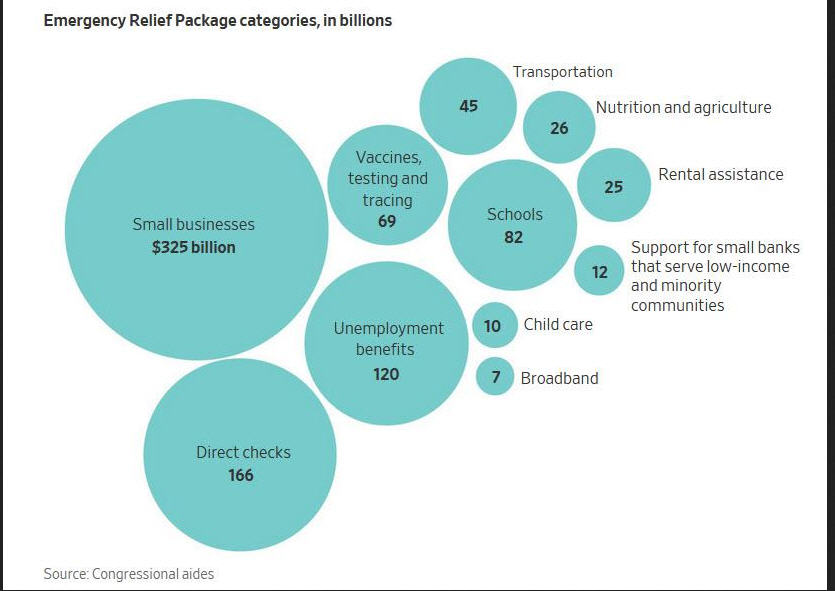The American Spectator posted an article today about the recently passed coronavirus relief bill.
The article reports:
Well, that didn’t take long. The first major bill passed by the new Democratic congressional majority and signed into law by our new president on March 11 had already provoked a constitutional challenge by March 17. The attorney general of Ohio filed suit against the Biden administration last Wednesday in the U.S. District Court for the Southern District of Ohio, alleging that the American Rescue Plan Act (ARPA) unconstitutionally and coercively limits the right of states to manage their internal fiscal policies: “This suit challenges an unconstitutional provision in the American Rescue Plan Act — a provision that allows the federal government to commandeer state taxing authority.”
If the use of “commandeer” in this context seems vaguely familiar, it’s probably a vestigial memory of the Obama administration’s failed attempt to exert equally questionable control over state budgets using the mandatory Medicaid provision of Obamacare. Fortunately, in NFIB v. Sebelius, the Supreme Court ruled 7-2 that such coercion is unconstitutional. Ohio’s ARPA challenge involves a provision whereby $195.3 billion in fiscal recovery aid will be distributed among the states and the District of Columbia. Beyond its effect on the federal budget deficit, this doesn’t seem particularly pernicious. The real problem arises from the restrictions the provision imposes on the power of the states to reduce taxes:
A State or territory shall not use the funds provided under this section or transferred pursuant to section 603(c)(4) to either directly or indirectly offset a reduction in the net tax revenue of such State or territory resulting from a change in law, regulation or administrative interpretation during the covered period that reduces any tax (by providing for a reduction in a rate, a rebate, a deduction, a credit or otherwise) or delays the imposition of any tax or tax increase.
This constitutionally dubious language was inserted into the legislation by the Democrats at the last minute, the New York Times reports, for the express purpose of interfering with the ability of the states to make changes in their tax codes. It is a deliberate and insolent attack by the federal government on state sovereignty and the doctrine of federalism. As Ohio Attorney General Dave Yost puts it in his Motion for Preliminary Injunction, “The Tax Mandate thus gives the States a choice: they can have either the badly needed federal funds or their sovereign authority to set state tax policy. But they cannot have both. In our current economic crisis, that is no choice at all. It is a metaphorical ‘gun to the head.’ ”
The coronavirus relief bill actually punishes fiscally responsible states and rewards fiscally irresponsible states, so it is no surprise that the law would actually limit the ability of states to improve their economies by lowering taxes. In the world envisioned by the current Democrat party, we would all pay more taxes and government would have more control over our lives. Never in the history of America have Americans been given government guidelines as to their activities in their own backyards on Independence Day. I fear that this is only the beginning of the power grab by those currently in control of Washington.


